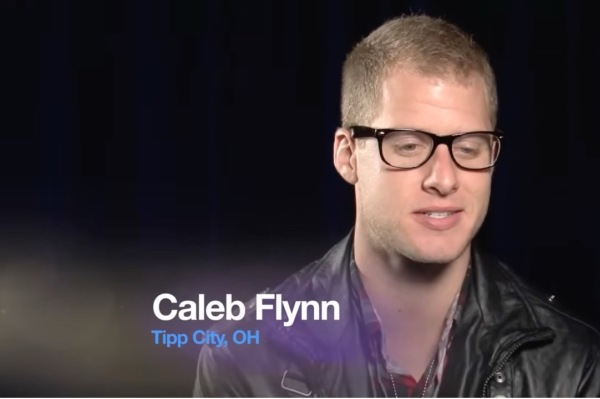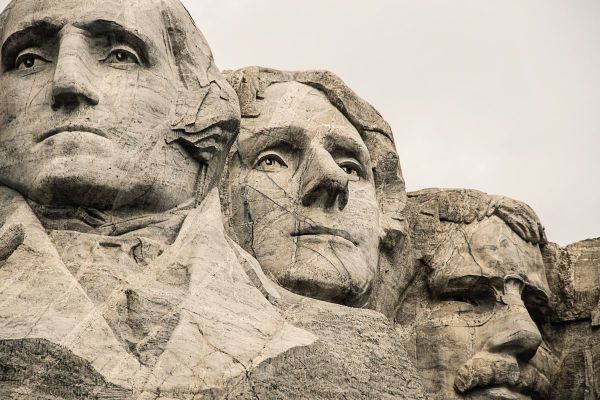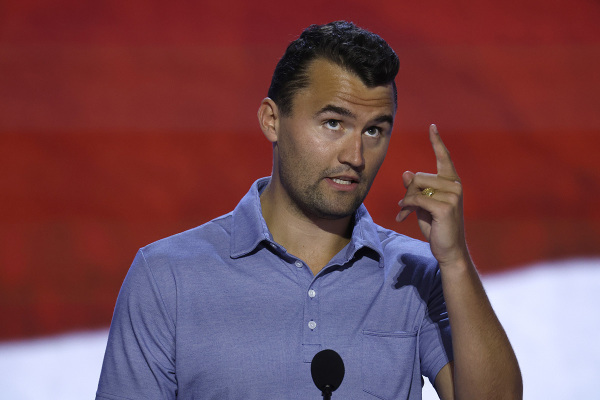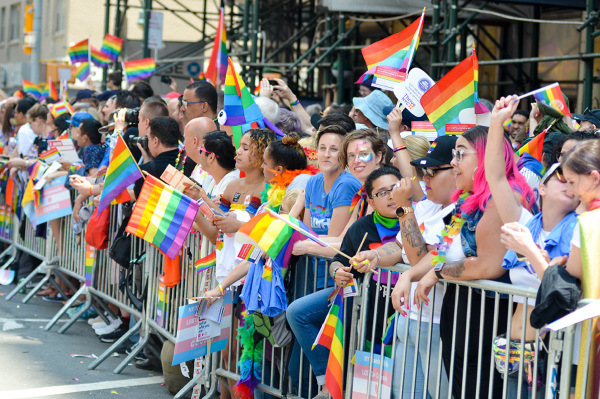Supreme Court hears 'monumental' student speech case over profanity-laced Snapchat post
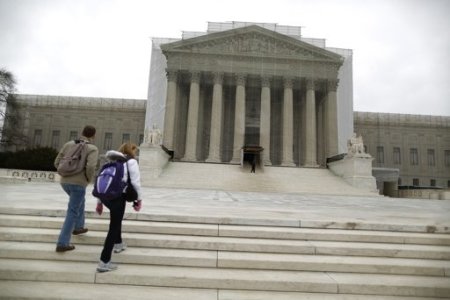
The U.S. Supreme Court heard oral arguments in a free speech case involving a Pennsylvania high school student who was kicked off her cheerleading team over a profanity-laced Snapchat message, a case advocates say has free speech implications for all students.
The former student, Brandi Levy, and her parents are fighting the Mahanoy Area School District in the Supreme Court over the student’s profanity-laced Snapchat message voicing her frustration with not making the varsity squad.
Mahanoy Area School District v. B.L. was heard before the court on Wednesday. Advocates say that students’ free speech rights “hang in the balance” as the nation’s high court has the opportunity to weigh just how far schools can go in policing speech conduct that occurs outside their buildings.
Malcolm Stewart, deputy solicitor general at the Department of Justice, represented the Biden administration in support of the school district. David Cole, national legal director for the American Civil Liberties Union, advocated for Levy. Lisa Blatt represented the school district.
Levy, identified in the case as “B.L.,” the high school student and respondent, made the Mahanoy Area High School junior varsity cheerleading team as a rising freshman and hoped to make the varsity team in 2017 as a rising sophomore.
B.L. was disappointed at the end of the year when she learned she did not make the varsity team for the next fall and made the junior varsity squad for the second year in a row. Meanwhile, a rising freshman made the varsity squad and surpassed J.V. completely.
In response to her disappointment, B.L. posted a photo on Snapchat on a Saturday, which went out to an audience of around 250 Snapchat “friends.” Many of her Snapchat friends were classmates or fellow cheerleaders.
A Snapchat post disappears after 24 hours and is only visible to a user’s “friends” on the app.
“[F***] school [f***] softball [f***] cheer [f***] everything,” her Snapchat message read with a photo of her and a friend raising their middle fingers.
A second message said, “Love how me and [another student] get told we need a year of jv before we make varsity but that[] doesn’t matter to anyone else?...”
A cheerleader who saw B.L.’s profanity-laced Snapchat posts sent a screenshot to one of Mahoney’s cheerleading coaches.
Several students approached the coaches in the next week over concern if B.L. would return to the cheerleading team. Some of the students were reportedly “visibly upset.”
Due to the nature of her posts, the coaches determined B.L. violated team and school rules and kicked her off the cheer team for the school year and said she could try out the next year.
The coaches decided the student violated a rule that requires students to avoid “foul language and inappropriate gestures” and to “have respect” for coaches and other cheerleaders.
The coaches also said the student “violated a school rule requiring student athletes to ‘conduct[] themselves in such a way that the image of Mahanoy School District would not be tarnished in any manner.’”
Her parents appealed to the athletic director, principal, superintendent and school board, who all sided with the coaches.
B.L. and her parents then sued the Mahanoy Area School District in the U.S. District Court for the Middle District of Pennsylvania, alleging the school violated their daughter’s First Amendment rights by restricting her off-campus speech. The federal court and the U.S. Third Circuit Court of Appeals ruled in favor of the student. The school district appealed the case to the Supreme Court.
Will Creeley, the legal director for the nonprofit Foundation for Individual Rights in Education, told The Christian Post in a Thursday interview that “the rights of [students] … hang in the balance of this decision” and said the decision will be “monumental for students’ speech rights.”
The question at stake is if a 1969 Tinker v. Des Moines Independent Community School District decision, which says public school officials can regulate speech that would “disrupt the work and discipline of the school,” applies to students while they are off-campus.
Creeley said the Supreme Court should side with the student and her parents and “reject such a dangerous expansion of government power,” which would strictly limit a student’s free speech outside of school.
“If you are a student with the dissenting viewpoint at your public school and you say or do something on the weekend that a public school administrator sees via social media and worries might cause a ‘disruption,’ however unreasonably, you risk punishment,” Creeley said. “Let’s say you attend a rally — be it a Black Lives Matter rally or a Trump rally — on the weekend and post a picture of it, are you in danger of being punished on Monday?”
“If your school administrator thinks your post might constitute a disruption, you absolutely are,” Creeley continued. “Even though this case is about a cheerleader’s profane Snapchat, the implications for student speech rights are far bigger and could reach a great deal of political, religious speech as well as just everyday students.”
Arguing for the school district, Blatt argued that “schools cannot target political and religious speech.”
“Tinker applies off campus only when the student targeted both the school audience and a school topic,” she said. “And, more broadly, this Court can clarify Tinker's reach both on and off campus.”
Blatt argued that the Tinker ruling should apply to off-campus speech because “speech can cause on-campus disruption.”
“First, off-campus speech, particularly on social media, can be disruptive,” he stated. “The Internet's ubiquity, instantaneous and mass dissemination, and potential permanence make the speaker's location irrelevant. Yet, the decision below arbitrarily treats location as dispositive.”
Creeley told CP that though the school has authority over the students when they are under school supervision, punishing students for their after-school speech takes away the job from the parents.
“But when the student is outside of school … on the weekend at a convenience store on a Saturday afternoon, … the school, at that point, has to back off. And the immediate nature of social media doesn’t give the school due power to regulate the student speech at all hours,” Creeley told CP.
“That is a recipe for a surveillance debate. …,” he said. “That’s a recipe for eroding trust in the First Amendment among [students]. That’s the real concern we have here. Schools have the power to regulate speech when they’re supervising students. When they’re not, that power is no longer is present.”
Another concern Creeley has with the case is how this ruling could prevent students from whistleblowing or speaking out about issues in their schools for fear of “disrupting” the school environment.
In a friend-of-the-court brief, the Pacific Legal Foundation and the libertarian think tank Cato Institute argued that "allowing school administrators to punish speech in times and places outside their control and supervision also improperly focuses on the reaction to speech rather than the speech itself …"
“Moreover, our culture currently is experiencing a dangerous trend of punishing individuals for speech on social media with the intent and effect of stifling ideas,” the brief continued. “Empowering school administrators to punish students for any-time-anyplace speech creates an incentive for students, parents, and staff to engage in informant-style behavior that is anathema to American values.”
The brief contends that First Amendment protection “cannot vary based on offended reactions to speech.”
Arguing for the federal government, Stewart contends that the Third Circuit’s ruling in favor of the student would set a precedent that would allow the student to “send out Snaps from her home every evening disparaging the coaches, her teammates, and the enterprise of cheerleading.”
“Such messages from a member of the squad would have an evident tendency to disrupt the functioning of a school program that depends on and is intended to instill values of team building and mutual support,” he argued.










